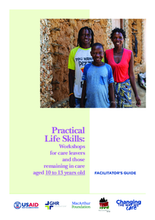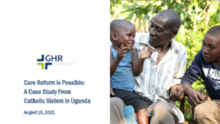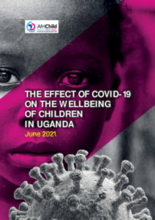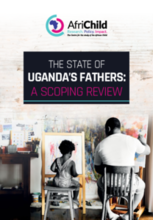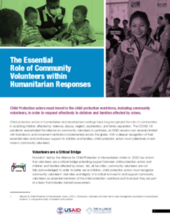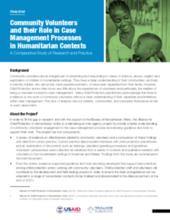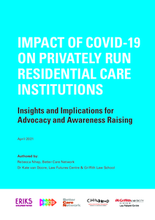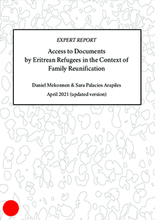Displaying 141 - 150 of 665
This series of resources are designed by care leavers for care leavers to help equip youth for life outside of care, strengthen coping strategies, foster safety nets and community networks. This Facilitator's Guide is based on the 10 to 13 guidebook and 18 to 25 guidebook.
This series of resources are designed by care leavers for care leavers to help equip youth for life outside of care, strengthen coping strategies, foster safety nets and community networks. It builds from earlier life skills work that the Kenyan Society of Care Leavers has done, supported by Changing the Way We Care with global best practices.
This presentation details the landscape of Catholic landscape of care in Uganda and shares details of a case study from the Catholic Sisters in Uganda.
The assessment of COVID-19 effect on the Wellbeing of Children in Uganda was conducted between June and August, 2020 by AfriChild Centre, Makerere University. The study took a retrospective approach with a focus on the three months of the COVID-19 lock down (AprilJune 2020) to counter contradictions that could arise from a longer study period in the face of changing dynamics of COVID-19.
This report on the State of Uganda’s Fathers is the first of its kind. The first State of the World’s Fathers Report was published in 2015. This report was monumental in that it highlighted information about fathers and men’s caregiving globally.
This is a 3-page document targeting donors, policy makers, and UN agencies regarding the roles of volunteers and how decision makers can support their roles
The Alliance for Child Protection in Humanitarian Action undertook an inter-agency project to provide a better understanding of community volunteers’ engagement in the case management process and develop guidance and tools to support their work.
This report examines the rise in child labor and poverty during the Covid-19 pandemic in three countries: Ghana, Nepal, and Uganda, the impact on children’s rights, and government responses.
This study explores the effect of COVID-19 on a small number of privately run and funded residential care institutions by conducting a qualitative research study comprising 21 semi-structured interviews across seven focus countries.
This Independent Expert Report is concerned with challenges experienced by Eritrean refugees in Europe in the context of family reunification processes, in particular those relating to strict documentary requirements demanded by some EU Member States, in particular Germany.


